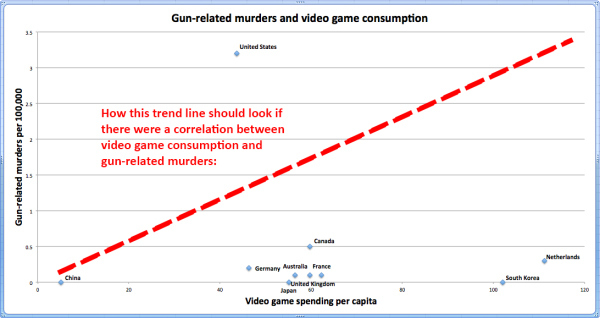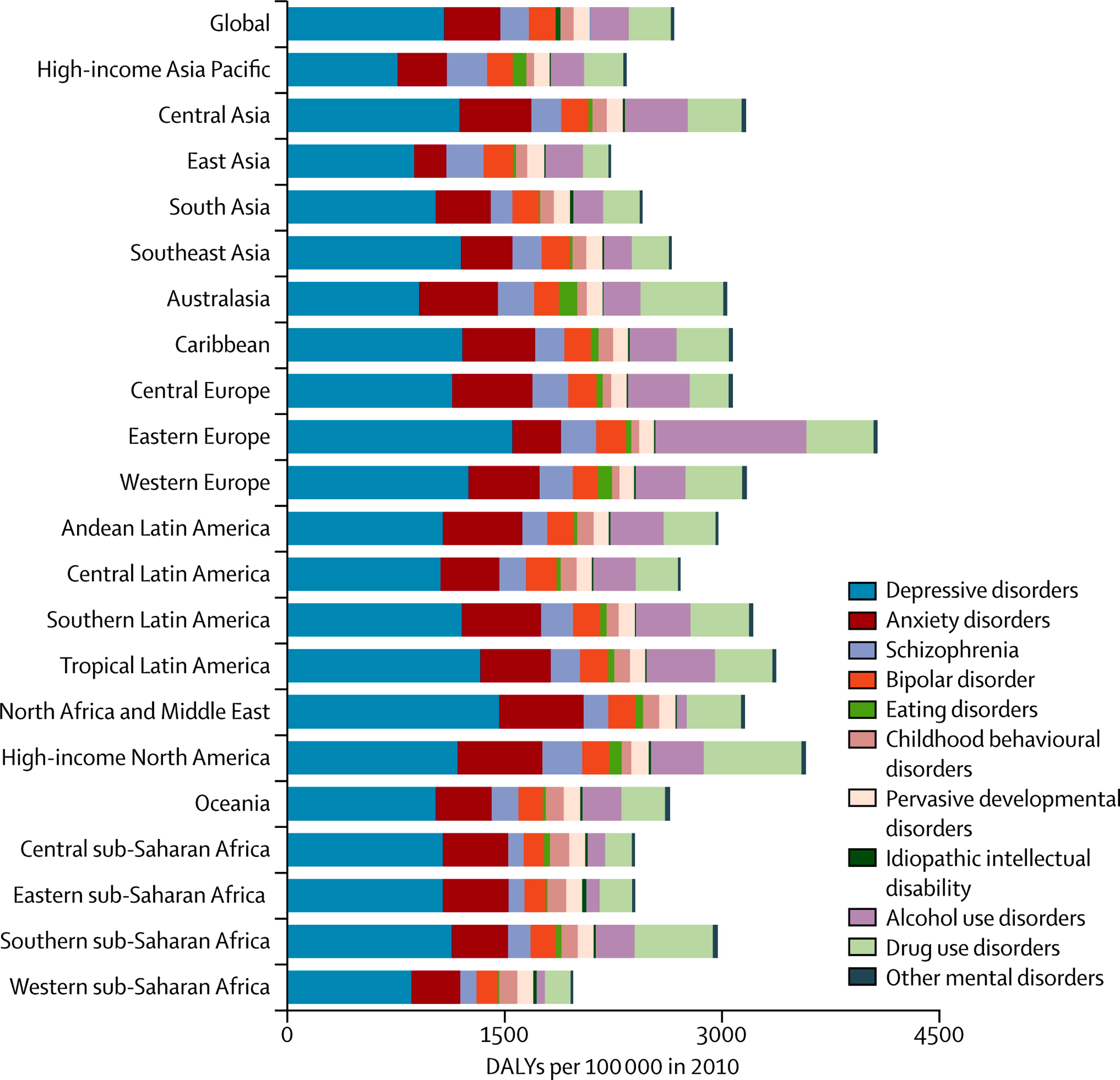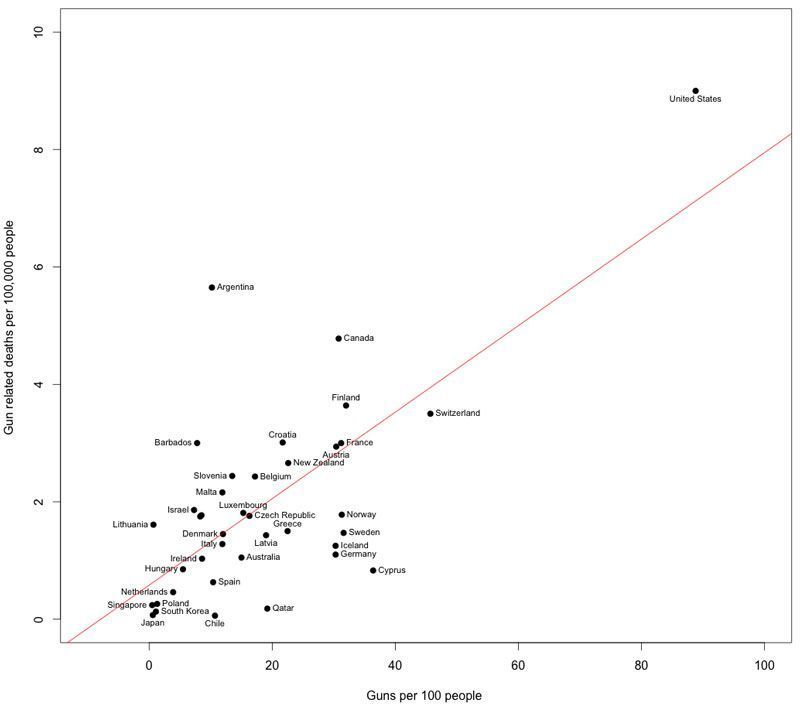This is a very contentious issue, and both sides have numerous studies to cherry-pick to support their side. In a search of academic articles (as opposed to blog posts), I have come across a couple that I feel are relevant, well sourced and conducted, and impartial.
Harvard University published a report in October of 2010. Some key points:
- Much of the research on violent video game use relies on measures to assess aggression that don't correlate with real-world violence. Some studies are observational and don't prove cause and effect.
- Federal crime statistics suggest that serious violent crimes among youths have decreased since 1996, even as video game sales have soared.
- Parents can protect children from potential harm by limiting use of video games and taking other common-sense precautions.
A key point (emphasis mine):
Other researchers have challenged the association between violent video game use and school shootings, noting that most of the young perpetrators had personality traits, such as anger, psychosis, and aggression, that were apparent before the shootings and predisposed them to violence.
The Michigan Youth Violence Prevention Center also speaks of there being a more nuanced view of this. While they support a link between violent video games and aggressive behavior, this doesn't translate well into school shootings. Without easy access to guns, this aggressive behavior is limited to giving study participants extra hot sauce, or bullying in school. They conclude with:
Finally, most researchers would agree that violent behavior is determined by many factors which may combine in different ways for different youth. These factors involve neighborhoods, families, peers, and individual traits and behaviors. Researchers, for example, have found that living in a violent neighborhood and experiencing violence as a victim or witness is associated with an increased risk for violent behavior among youth. Yet, this factor alone may not cause one to be violent and most people living in such a neighborhood do not become violent perpetrators. Similarly, researchers have found consistently that exposure to family violence (e.g., spousal and child abuse, fighting and conflict) increases the risk for youth violent behavior, but does not necessarily result in violent children. Likewise, researchers have found that first person killing video game playing is associated with increased risk for violent behavior, but not all the time. Yet, constant exposure to violence from multiple sources, including first person violent video games, in the absence of positive factors that help to buffer these negative exposures is likely to increase the probability that youth will engage in violent behavior.
Despite disagreements on the exact nature of the relationship between violent video game playing and violent or aggressive behavior, significant evidence exists linking video game playing with violent behavior and its correlates. Although we are somewhat agnostic about the role of social controls like laws banning the sale of violent video games to minors, an argument against such social controls based on the conclusion that the video games have no effect seems to oversimplify the issue. A more in-depth and critical analysis of the issue from multiple perspectives may both help more completely understand the causes and correlates of youth violence, and provide us with some direction for creative solutions to this persistent social problem.
I did also find this site that outlines both sides of the issue side by side. One surprising item in the list:
Gun violence is less prevalent in countries with high video game use. Per capita video game sales were $5.20 in the United States compared to $47 in Japan. In 2005, the United States had 2,279 murders committed by teenagers (27.9 per million residents) compared to 73 in Japan (3.1 per million).[11][12][13] A study of the countries representing the 10 largest video game markets internationally found no correlation between playing video games and gun-related killings. [97] Even though US gun violence is high, the nine other countries with the highest video game usage have some of the lowest violent crime rates (and eight of those countries spend more per capita on video games than the United States). [97]
Of note on the side saying video games cause violence, there is a lack of direct association to mass shootings except as a post hoc argument.
And in this entire debate, the notable outlier statistic is the ease and prevalence of guns in the US. All other countries have similar (or even greater) rates of violent video game consumption, mental illness, or whatever excuse the pro-gun lobby wants to blame it on.

Source for the plot: an article on the Washington Post

Source for the plot: a scientific paper on the Lancet one of the world's most prestigious scientific journals in medicine. Access to the paper is free, but it requires a registration on the Lancet's site.

Source for the plot: this archived website, citing multiple Wikipedia sources
http://en.wikipedia.org/wiki/List_of_countries_by_firearm-related_death_rate
http://en.wikipedia.org/wiki/Number_of_guns_per_capita_by_country
http://en.wikipedia.org/wiki/List_of_countries_by_Human_Development_Index
http://en.wikipedia.org/wiki/List_of_countries_by_inequality-adjusted_HDI
http://en.wikipedia.org/wiki/Urbanization_by_country



